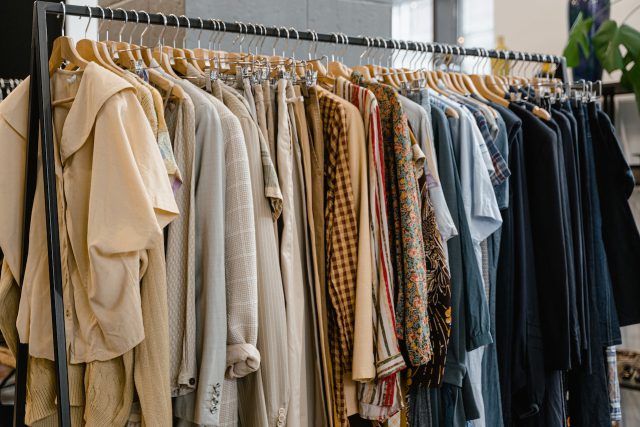Notably, a group of fifteen top US apparel companies wrote to the government of Bangladesh, requesting a large rise in the minimum wage for workers producing ready-to-wear (RMG) products. The brands are advocating for wages that not only cover basic needs but also provide discretionary income while considering inflationary pressures. This action seeks to address a long-standing issue of inadequate wages for Bangladesh’s RMG industry, which employs millions of workers. In this write-up, I delve into the details of this critical initiative, the rationale behind it, and the current wage scenario in Bangladesh’s RMG sector.
The Signatory Brands
The brands that signed the letter to the Bangladesh government are:
- Adidas
- Gap Inc
- Under Armour
- Patagonia
- Burton
- Hugo Boss
- Abercrombie & Fitch
- Amer Sports
- AEO Inc
- Levi Strauss & Co
- Lululemon
- SanMar
- KMD Brands
- PVH Corp
- Puma
Background and Urgency
The need for revising the minimum wages for RMG workers in Bangladesh has become increasingly urgent due to the prolonged stagnation in wage rates. The average monthly net wages for garment workers in Bangladesh have remained unchanged since 2019. During this period, inflation has significantly eroded the real value of these wages. This inaction has prompted the signatory brands to advocate for the adoption of an annual minimum wage review mechanism that can adjust to the changing macroeconomic factors.
Government’s Wage Review Mechanism
The Bangladesh government established a six-member wage board for RMG workers on April 9 of the current year. However, despite several extensions of its six-month tenure, the board has not proposed a new wage structure. The fourth meeting of this board is scheduled for October 22 in the capital, Dhaka. Both RMG owners and workers’ representatives have been asked to submit their wage proposals during this meeting. The workers and trade unions are demanding a monthly minimum wage of Tk 23,000, while apparel makers intend to propose Tk 9,000, which could potentially be lower than the 2018 wage structure when converted to USD rates.
Global Wage Comparison
A comparative analysis of wages paid by different RMG exporting nations underscores the low wages in Bangladesh’s RMG sector. China pays a minimum of $161 in RMG worker wages, India pays $165, Vietnam pays $191, Pakistan pays $110, and Cambodia pays $200. In contrast, Bangladesh’s RMG workers earn a considerably lower wage, with the central bank data revealing that the monthly wage, which was fixed at $100 or Tk 8,000 in 2018, has now depreciated to approximately $74.5 per month due to currency depreciation.
The Signatory Brands’ Recommendations
In their letter to the Bangladesh government, the US brands emphasized the importance of inclusive consultations and constructive dialogue among labor groups and trade unions. They are advocating for a successful conclusion to the ongoing wage negotiations that considers the views of all stakeholders and reflects the economic realities in Bangladesh.
Furthermore, the brands highlight the role that apparel brands and retailers can play in facilitating these recommendations. They commit to implementing responsible purchasing practices and call on the government to foster an environment that respects workers’ collective bargaining rights and empowers them as essential stakeholders in the nation’s progress.
The collective action of these US clothing brands sends a strong message to the Bangladesh government, urging them to address the longstanding issue of inadequate wages in the RMG sector. It also sheds light on the urgent need to review and increase the minimum wages for RMG workers to ensure that they receive fair compensation that considers the rising cost of living and inflation. As the minimum wage review process progresses, it remains to be seen how the government will respond to the recommendations of these influential brands and how the livelihoods of the millions of RMG workers in Bangladesh will be affected by this critical decision.
Here are some links for our readers with valuable perspectives from reputable sources that support and expand on the ideas discussed in this article. Explore and enrich yourself.
- Bangladesh Minimum Wage Overview
- This link provides detailed information on the current minimum wage in Bangladesh and related labor issues.
- Bangladesh RMG Industry Statistics
- It offers comprehensive statistics and insights into the RMG industry in Bangladesh, which can support the context of the article.
- US Apparel Brands Advocacy for Workers’ Rights
- This link from the American Apparel and Footwear Association discusses the responsible business practices and worker welfare efforts of US apparel brands.
- Global Comparison of Garment Worker Wages
- It provides a global comparison of garment worker wages in various Asian countries, which can offer a broader perspective on the issue.
- Bangladesh Garment Industry News
- This link connects to a reliable source of news related to the garment industry in Bangladesh, which can provide updates on the ongoing wage negotiations and other developments.
Read more from our Business Cloud Section: Click Here
Read more write-ups of this author: Click Here

About The Author:
Mirza Rakib Hasan Shovon
Managing Director and CEO
Aristo Tex International
Technet Corporation
ANYVAS
Director
Research & Development
International Corporate Association of Professionals (InCAP)















